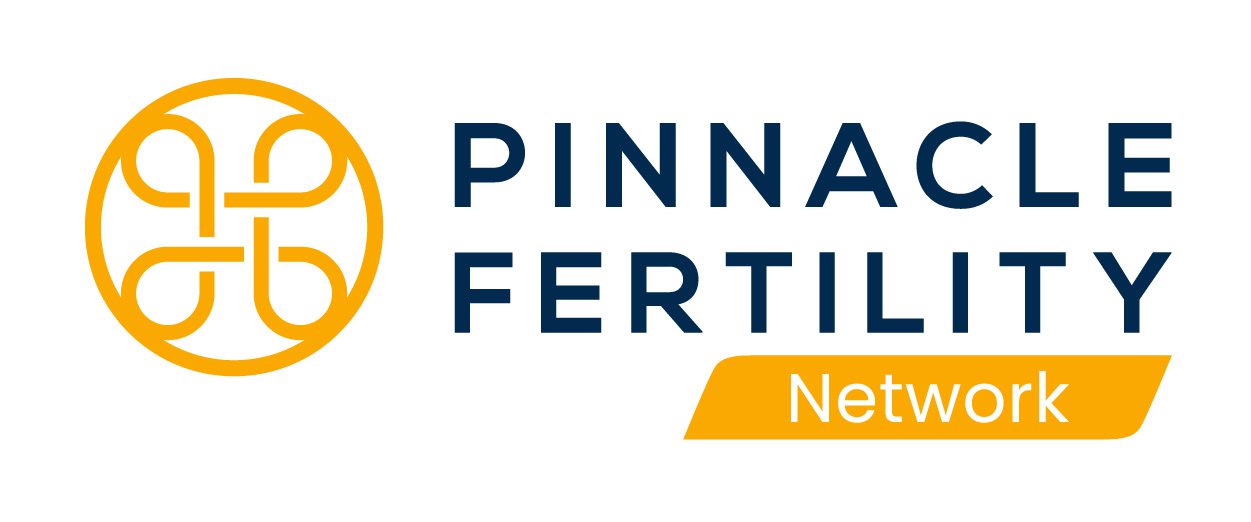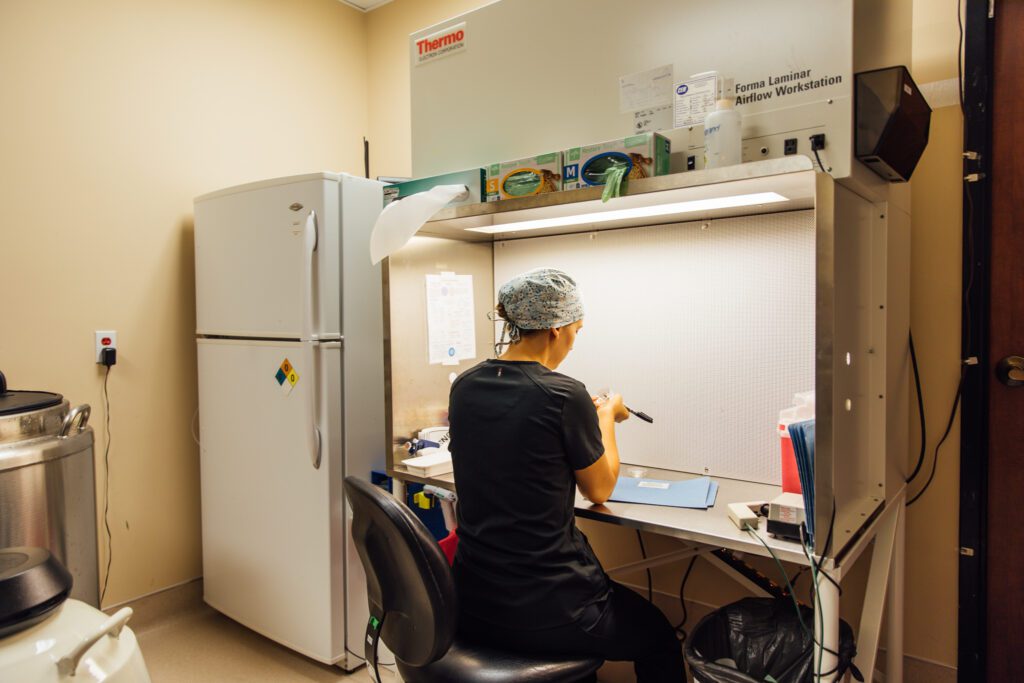Navigating the world of fertility treatments can be an overwhelming process filled with many difficult decisions and unknown factors. One powerful tool used to provide intended parents with additional information is PGT, or Preimplantation Genetic Testing. This testing provides vital information that can improve outcomes and offer peace of mind to those beginning their family-building journey.
So, what exactly is PGT, and why do so many intended parents choose to make it a part of their fertility journey?
What Is PGT?
Preimplantation Genetic Testing (PGT) is a test performed during an IVF (in vitro fertilization) cycle. After eggs are fertilized and embryos begin to develop, a few cells are removed from each embryo for genetic analysis. The results from this process helps screen for embryos that are affected by the genetic conditions being tested for and therefore increase the likelihood of a healthy pregnancy and delivery by transferring unaffected embryos.
There are three main types of PGT:
PGT-A
Preimplantation Genetic Testing for Aneuploidy (PGT-A) is a procedure that evaluates embryos for chromosomal imbalances, such as extra or missing chromosomes. These abnormalities can reduce the chances of successful implantation and increase the likelihood of miscarriage. In addition to identifying chromosomally healthy embryos, PGT-A may also allow prospective parents to select their baby’s sex, if they wish to do so.
PGT-M
Preimplantation Genetic Testing for Monogenic Disorders (PGT-M) is used to detect specific inherited genetic conditions, such as cystic fibrosis or sickle cell anemia, before an embryo is transferred. This screening helps identify embryos that are unaffected by the disorder, offering a valuable option for individuals or couples who carry a known risk of transmitting a genetic condition.
PGT-SR
Preimplantation Genetic Testing for Structural Rearrangements (PGT-SR) identifies irregularities in the structure of chromosomes. These genetic alterations can disrupt normal embryo development, potentially leading to failed implantation, miscarriage, or inherited conditions in children.
Why Do Intended Parents Opt In for PGT?
PGT isn’t mandatory, but many intended parents, especially those using IVF or surrogacy, choose it for several key reasons. Not only can it increase the chance of a healthy pregnancy and increase IVF success rates, but it can also reduce the risk of genetic disorders in future children, providing more peace of mind for intended parents.
The Genetic Testing Process:
Step 1: Personalized Consultation
Your journey begins with an in-depth conversation with your fertility specialist. They’ll review your medical history, discuss your reproductive goals, and determine whether genetic testing could play a meaningful role in your treatment plan.
Step 2: Collecting Samples & Embryo Biopsy
If embryo testing is part of your plan, eggs are retrieved and fertilized in the lab. Once embryos develop to the appropriate stage, a few cells are carefully removed for analysis.
Step 3: Advanced Genetic Screening
The genetic material is then thoroughly examined to detect inherited conditions or chromosomal irregularities that could impact embryo viability or pregnancy success.
Step 4: Understanding the Results
When the results are ready, your doctor or genetic counselor will review them in detail, explaining what they mean for your treatment path. This insight helps guide decisions about which embryos are best suited for transfer and whether any adjustments to your fertility plan are needed.
Is PGT Right for Every Intended Parent?
Not necessarily. Many IPs find immense value in PGT; however, it is a personal decision made in partnership with your medical team. Some considerations include maternal age, previous IVF or pregnancy history, family medical background, and overall goals for the journey.
At Pinnacle Fertility, we support intended parents with tailored guidance every step of the way. Whether you choose PGT or not, our priority is helping you build the healthy, happy family you’ve been dreaming of.
Have Questions About PGT or IVF?
We’re here to help. Schedule a consultation to learn more about how PGT can support your path to parenthood.





